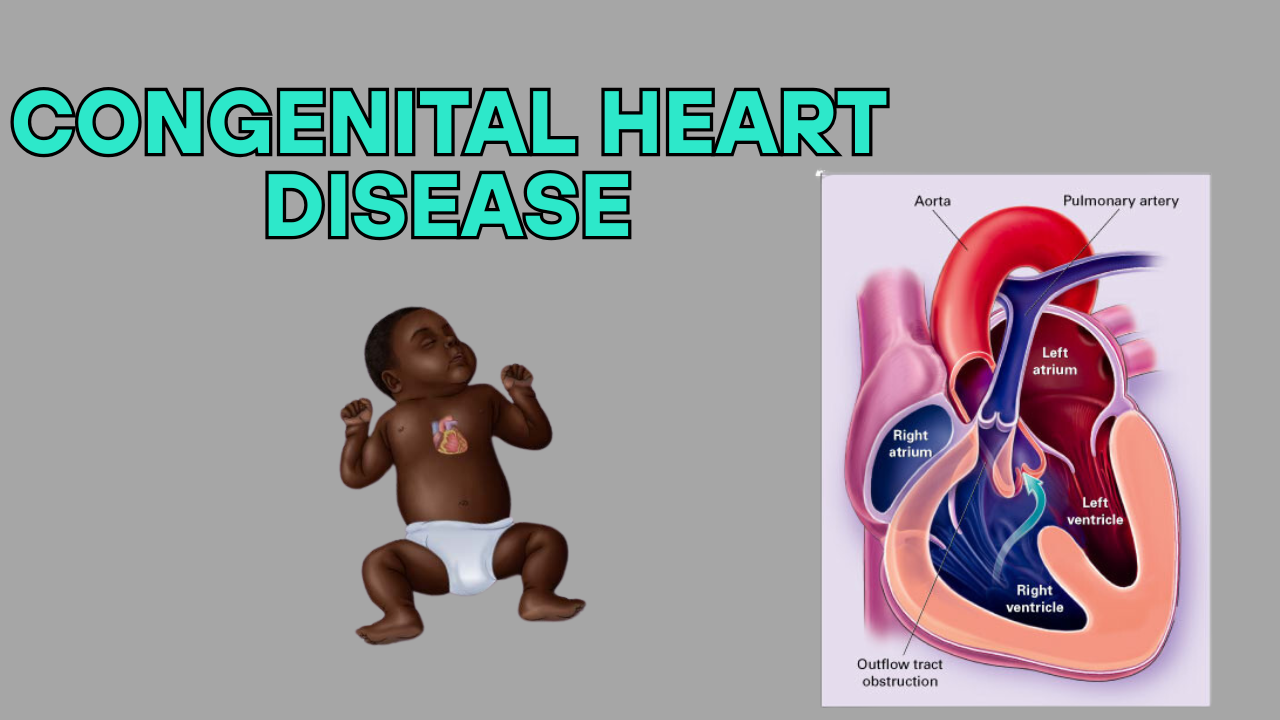- everything you need to know about -
Congenital Heart Disease
watch a
video
- HEALTH & wellness -
Congenital Heart
disease
Congenital heart disease (CHD) refers to a heart problem present at birth. It’s one of the most common birth defects, affecting how the heart forms and functions. For many parents, hearing that their baby has a heart condition can be frightening and overwhelming. But advances in pediatric cardiology have made it possible for most children with CHD to live long, active lives.
In this blog post, we’ll explore what congenital heart disease is, common types, symptoms to watch for, and how it’s diagnosed and treated — all in a way that’s easy to understand and grounded in real-world support.
🫀 What Is Congenital Heart Disease?
Congenital heart disease is an abnormality in the structure of the heart that develops during pregnancy. It can affect the heart walls, valves, arteries, or veins. Some heart defects are mild and may not cause symptoms, while others may need surgery or medication early in life.
These heart defects in babies may range from a small hole in the heart (like a ventricular septal defect) to more complex conditions such as Tetralogy of Fallot or transposition of the great arteries.
🧒 Who Is at Risk of Baby Heart Conditions?
While the exact cause of many heart defects remains unknown, several factors may increase risk:
Genetic conditions (e.g., Down syndrome)
Maternal diabetes or infections during pregnancy
Smoking, alcohol, or drug use during pregnancy
Family history of congenital heart problems
It’s important to remember that CHD can happen even when no risk factors are present.
🩺 Signs and Symptoms in Babies and Children
Some heart defects show symptoms right after birth, while others may not be detected until later in childhood. Common signs include:
Rapid breathing or trouble feeding
Blue tint to lips or skin (called cyanosis)
Fatigue or poor weight gain
Frequent lung infections
Heart murmur (an extra sound heard through a stethoscope)
Milder forms might go unnoticed for years. That’s why early screening and regular checkups are important.
🧪 How Is Congenital Heart Disease Diagnosed?
CHD is often diagnosed with the help of:
Fetal echocardiogram (a heart ultrasound during pregnancy)
Pulse oximetry (measures oxygen in the blood after birth)
Echocardiogram, chest X-ray, or ECG (after birth)
Cardiac MRI or CT scan for more detailed images
In some countries, routine newborn screening includes checking for serious heart defects before discharge from the hospital.
🛠️ Treatment Options for Pediatric Heart Conditions
Treatment depends on the type and severity of the defect. Options may include:
Medication to help the heart work better or control symptoms
Minimally invasive procedures, such as catheter-based interventions
Open-heart surgery to repair structural problems
Heart transplant, in rare and severe cases
Many children with CHD will need lifelong follow-up care with a pediatric cardiologist, especially if the defect was complex.
💪 Living With Congenital Heart Disease
With proper care, most children with heart defects can grow up to live healthy, active lives. Supportive care includes:
Regular heart checkups
A heart-healthy diet and safe physical activity
Monitoring for signs of complications
Emotional and mental health support
Connecting with support groups and heart communities can also help families navigate the emotional side of the diagnosis.
❤️ Hope Through Advances in Pediatric Cardiology
Medical science has come a long way. Today, more than 90% of children born with CHD survive into adulthood. Many go on to become parents themselves, with careers, families, and full lives.
Thanks to improved early diagnosis, better surgical techniques, and family-centered care, there is real hope for every child born with a heart condition.
🔍 Key Takeaways
Congenital heart disease is the most common type of birth defect.
Symptoms can range from mild to life-threatening, but many are treatable.
Early diagnosis, treatment, and follow-up care make a big difference.
Emotional support and education help families manage the journey.
Final Thoughts
If your baby has been diagnosed with a heart condition, know that you are not alone. Every journey is different, but with the right medical team, love, and support, most children with congenital heart disease can thrive. Stay informed, ask questions, and advocate for your child — because every heartbeat matters.

